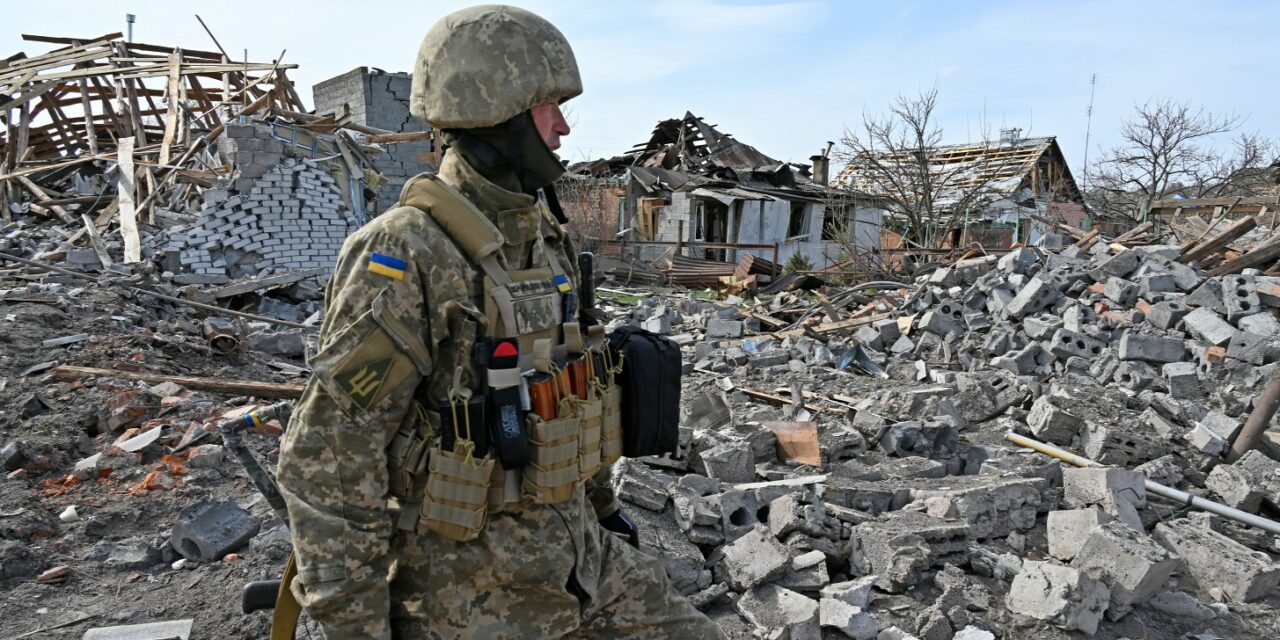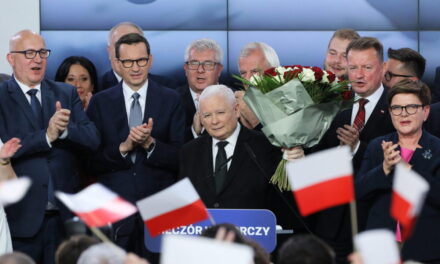At the end of April, Ukrainian President Volodymyr Zelenskyi stated that his country needs up to $7 billion a month in support in the ongoing fight against Russian invasion. This does not include the colossal amount (potentially trillions of dollars) that will be needed to rebuild Ukraine after the war ends.
Many commentators, including Ukraine's richest oligarch, have called for a "Marshall Plan for Ukraine", noting that there is no way the country will be able to recover otherwise.
"While this assessment is correct - entire cities were razed to the ground, factories were completely destroyed and millions fled due to the loss of their livelihoods - it naturally raises a rather uncomfortable question that is currently on the minds of many policy makers, experts and Ukrainians themselves. : Who will pay for all this?"
- begins Carlos Roa, editor-in-chief of the security policy paper The National Interest, in the opinion section of Newsweek.
The article describes how Ukraine's economy was already in bad shape before Russia ran it over. Its pre-war national currency was described by economist Adam Tooze as "the fragile guardianship of the IMF". Unemployment was around 10.6% at the end of last year, and even many young ultranationalists admitted that they would migrate abroad because it is easier to find a job there.
The article quotes Anders Åslund, a senior fellow at the Atlantic Council, who said early last year that although the region's economic stability appears to be healthy, “few people dare to invest in Ukraine. Without judicial reform or an increase in investment, there is little reason to expect economic growth beyond the gains from the expected post-coronavirus recovery".
"The war obviously made the whole situation worse - according to the World Bank, Ukraine's GDP will drop by around 45 percent this year. An early reconstruction draft released on April 7 by the Center for Economic Policy Research gives a first estimate of the damage: somewhere between "200 billion and 500 billion euros" ($211 billion and $527 billion), a figure expected to be all increases with each additional day of war (and to an ever-increasing rate)," writes the author.
According to the article, it is very understandable that people are talking about the need for a Marshall Plan for Ukraine. However, according to the author, there would be two serious problems with its implementation.
The first problem, according to Roa, is that the modern Ukraine of 2022 is definitely not the same as the post-World War II Western Europe of 1948-1951. He admits that the Marshall Plan really helped rebuild Western Europe. But he points out that the continent's economic recovery had already begun at that time. The Marshall Plan, to quote Harvard historian Charles Maier, "was like the lubricant in an engine—not the fuel—that allowed a machine to run that would otherwise have languished and stalled."
Moreover, the author reminds us, this spending primarily served a political purpose: to convince the cautious post-war Western Europeans to economically integrate with each other and turn away from communism.
"On the other hand, even if the war in Ukraine were to end tomorrow, not only would reconstruction take longer, but the country's negative structural basic conditions have not yet been resolved. The Ukrainian oligarchs may have joined forces now, but it is because it is in their interest. After the war—when the time comes to compete again for political power, international aid, and resources—who knows?”
Roa writes.
The Ukrainian bureaucracy is still systemically corrupt, the author asserts, and pre-war efforts to counter such deep-rooted indiscipline were insufficient.
“In fact, the country was already in the midst of a constitutional crisis before the outbreak of war, as the Ukrainian Constitutional Court – the country's highest court – in 2020 struck down key parts of post-2014 anti-corruption laws and limited the powers of the National Anti-Corruption Agency. Zelensky and the court were at odds even at the outbreak of war. The list of problems goes on and on;
both Western policymakers and investors may worry that money directed to Ukraine will be wasted, misused, or simply stolen. Before any serious international financial support or investment becomes available, Kiev must quickly implement a series of bold reform measures - and even in this case success is not guaranteed - the journalist gives a gloomy picture of the situation.
According to the article, the second problem is: where will the money for a Ukrainian Marshall Plan come from? America in 1945 had the advantage of being incredibly rich: Not only did it have half of the world's gold and currency reserves, but it also produced slightly more than half of the world's manufactured goods and produced a huge agricultural surplus.
“The United States is still rich today, but the situation is much less rosy. Inflation is seething; energy prices, and correspondingly the prices of everything else, are expected to skyrocket; the big banks are warning that a 'Great Recession' is on the horizon,” writes Roa.
According to the author, Americans are less inclined to be generous under these circumstances, especially after two decades of wasteful spending on foreign wars. The article also points out that while the Biden administration and members of Congress may seem generous now, with the midterm elections in November and the long re-election campaign until 2024, that could change quickly.
"The European Union is in an even more unfavorable situation; not only does it face the same problems as the United States (in some ways worse), but it also has to deal with fiscal realities. Germany, for example, cannot simultaneously fight the coming recession and promise to increase its military spending by 100 billion euros, and give up cheap Russian gas and give Ukraine the billions it needs. "At some point, European leaders will sit down, look at the budget, admit that they cannot afford everything, and quietly realize that Ukrainians are not voting in European elections," Roa claims.
“So who will pay for Ukraine's Marshall Plan? Today, the answer is nominally “the West”: the United States, the EU, the World Bank, and so on. But tomorrow? This is the uncomfortable question that now hangs in the air above the heads of all political decision-makers"
Carlos Roa concludes.
Newsweek / Neokohn
Featured image: AFP / Sergey Bobok












